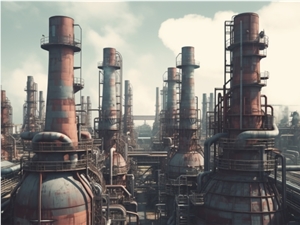With the rapid development of artificial intelligence, many people are worried that their industries may be affected, even facing the risk of unemployment. However, a recent Microsoft study shows that there are some occupations that are relatively safe in the short term and less likely to be threatened by artificial intelligence. The study analyzed 200,000 anonymous user conversations with Microsoft's Bing Assistant, evaluated AI adaptability scores for different professions, and revealed which jobs are least likely to be replaced by AI.

Image source note: The image was generated by AI, and the image licensing service provider is Midjourney
The study shows that occupations in the medical and blue-collar industries are particularly resilient against the impact of AI. In contrast, occupations related to information, writing, teaching, and consulting face a higher risk of being affected by AI. Microsoft emphasized in the report that low AI adaptability cannot directly determine whether a profession will disappear. The impact of technology is often complex and unpredictable, so it is not possible to simply infer which professions will disappear.
In the list of the 20 occupations with the lowest scores, blue-collar jobs such as dredge operators, bridge and lock supervisors, and water treatment plant and system operators ranked highly. The study results show that these positions involve physical labor and complex interpersonal interactions, making them difficult to be replaced by AI in the short term.
Additionally, occupations such as boat operators, cleaners, and general laborers in the oil and gas industry are also considered safe. This indicates that even some seemingly simple jobs involve practical operations and interpersonal relationships, making them difficult for AI to imitate. At the same time, occupations in the medical field, such as surgical assistants, massage therapists, and ophthalmic medical technicians, are considered relatively safe due to their professional skills and high-level emotional interaction.
Here is the ranking of the 20 occupations with the lowest AI adaptability scores:
- Dredge operator
- Bridge and lock supervisor
- Water treatment plant and system operator
- Casting mold and core making machine operator
- Railway track laying and maintenance equipment operator
- Pile driver operator
- Floor sander and polisher operator
- Serviceman
- Motorboat operator
- Logging equipment operator
- Pavement, surface, and compaction equipment operator
- Housekeeper and domestic cleaner
- General laborer (oil and gas)
- Roofing worker
- Natural gas compressor and natural gas pump station operator
- Helper - Roofing worker
- Tire manufacturer
- Surgical assistant
- Massage therapist
- Ophthalmic medical technician
Key points:
🌟 Medical and blue-collar jobs are the least affected by artificial intelligence.
🔧 Many occupations still require human physical labor and complex emotional communication.
📝 Low or high AI adaptability cannot simply determine the future of a profession.










